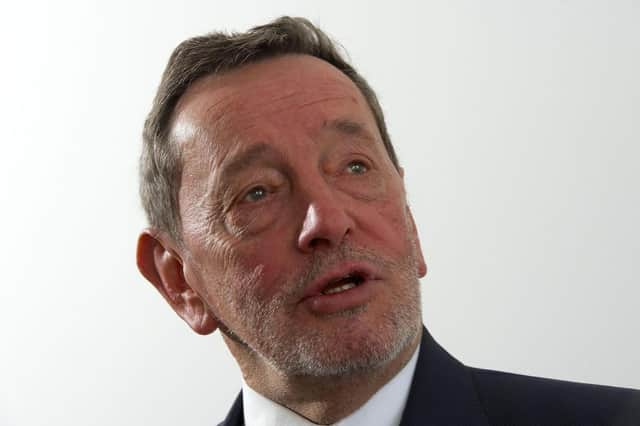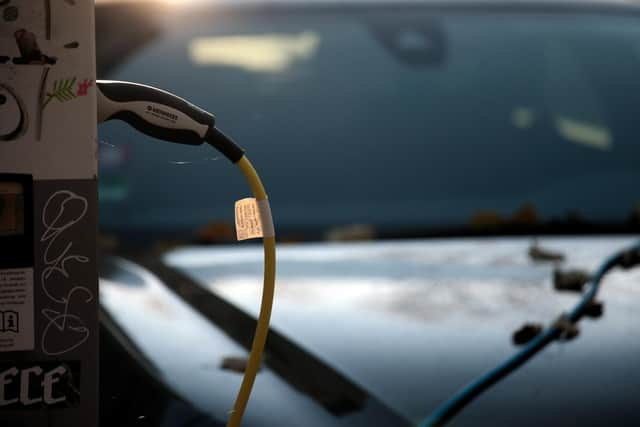'Tackling climate change must be done from the bottom up - with ordinary Sheffield people'


This is, of course, the most feeble argument against phasing out the enormous reliance we have on natural gas. There will be far more critical sacrifices made by us and future generations. If anything agreed in Glasgow is to come to fruition, it must be within a timescale that allows even the faintest chance of achieving net zero. This is seen as imperative to avoid calamity for island communities, and droughts in already threatened areas of the planet.
I still hope that scientific advance will help to make dramatic changes less painful, and therefore more manageable. Such as the use of hydrogen - a critical, but very expensive, alternative for steel production, and possibly for domestic purposes. The University of Sheffield is joining with ITN Power in developing crucial research to make this possible.
Advertisement
Hide AdAdvertisement
Hide AdI hope that Sheffield will also be able to benefit substantially from the development of small denomination nuclear reactors (SDRs). These are being produced by the University of Sheffield’s Advanced Manufacturing Research Centre, with involvement from Rolls-Royce, and in three- or four-years’ time, could complement the much larger and more controversial large-scale reactors - albeit the cost is an estimated £2 billion per SDR.


There is, however (and this is where Sheffield Forgemasters comes in), the potential for earlier investment for even smaller reactors, building on American know-how, and which could be in production much more speedily.
At COP26, there was a day dedicated to ways in which cities and city regions could contribute to the challenge of climate change. This didn’t get the publicity it deserved.
I believe, strongly, that this must be a genuine bottom-up initiative. I, surely, can’t be the only person who is committed to saving the planet, but has become tired of being preached at, and having Greta Thunberg trashing every potential move, however tentative, to take people along with rapid adjustments. “Blah blah blah”, is not only dismissive and unhelpful, but potentially dangerous.
Advertisement
Hide AdAdvertisement
Hide AdThe unspoken challenge of the future is not just to get the science right, make the vast resources needed available, or getting India and China to genuinely come on board.
The challenge is, in reality, just us - “ordinary” people. Telling “us” that the answer is “heat pumps”, is frankly risible. The amount of money being made available from the Autumn Financial Statement by the government would subsidise 90,000 of these installations. We currently have 25 million gas boilers.
Whichever way you cut it, the only answer is an unprecedented increase in electricity at a time when fuel prices are going through the roof. A combination of the very granular practical changes in lifestyle and adaptation, with a massive hit on family budgets, is going to take the wisdom of Solomon to manage.
I believe that what we should embrace is not a top-down hectoring of the population, with the real pain being borne by those least able to shoulder it, but rather a bottom-up approach which engages, works from the neighbourhood upwards, offers a listening platform and shares ideas. The City Council’s move to Local Area Committees, underpinned (as it must be) by the building blocks that reach people in much smaller neighbourhood and community involvement, offers part of the solution.
Advertisement
Hide AdAdvertisement
Hide AdI am very lucky. With my wife’s long-standing commitment to recycling, we have solar panels, and the facility for charging our hybrid car. For many people the first of these options seems an eternity away. Whilst coping with rapidly increasing fuel and energy bills, finding the cash to change their way of life is not only a big ask, but pretty much impossible. We must work through how we do this together, and what demands we make on central government - when only they can bring the resource and coordination to take us forward.
Where are the charging points going to be for the future? How do we best share, where possible, transport options? What are the specific challenges of those who live in apartments, bedsits and the like? Can investment in insulation be both a generator of jobs, and, simultaneously, a means to upgrade homes?
I have one greater fear for the immediate years ahead. Namely, the exploitation of fear and grievance by the far right, arising out of rapid change. As household budgets are squeezed, inequality in lifestyle is highlighted further, and individuals and families are told what to do but, without the helping-hand and funding to go with it, the whipping up of fear and resentment is a very real possibility. That is why working this through together, being honest about the downsides, as well as the ups, and making this a promise and not a perpetual threat, is vital.
As the City Council produces its 10-point plan, and many large entities start to consider how they are going to make their contribution, it is fundamental that we have an honest debate and reach people in any way we can, generate ideas, work together, and acknowledge that the “market” simply cannot handle the competing interests and avoid the potential disasters ahead.
I believe that only social democratic solutions, which combine national resources with local initiatives, can get us through the years ahead. But I would, wouldn’t I?